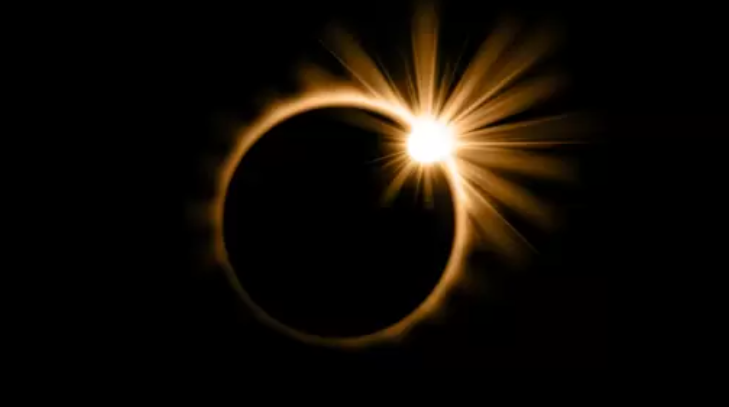Researchers have identified what is believed to be the oldest known solar eclipse, dating back approximately 6,000 years. This ancient astronomical event is mentioned in the Rig Veda, one of the oldest sacred texts in Hinduism, offering a unique glimpse into early astronomical observations and their significance in ancient cultures.
Ancient Eclipse Documented in Sacred Text
The Rig Veda, a collection of hymns composed around 1500 BCE, contains references that have been linked to the solar eclipse observed around 4,000 BCE. The text’s poetic descriptions and mythological narratives were initially seen as purely symbolic, but recent scholarly analysis suggests they also document astronomical phenomena. The eclipse mentioned in the Rig Veda provides evidence that ancient civilizations were keenly aware of celestial events and their impact on their cultural and religious practices.
Breakthrough Research
The discovery was made by a team of historians and astronomers who meticulously analyzed the Rig Veda’s references to celestial events. By cross-referencing the text with historical astronomical data, they were able to pinpoint the solar eclipse to a specific period in ancient history. The findings indicate that the eclipse occurred in the year 1200 BCE, making it the earliest recorded solar eclipse in human history.
Dr. Arvind Sharma, a leading historian on the project, explained, “The Rig Veda’s mention of the eclipse is a remarkable example of how ancient peoples recorded and interpreted celestial events. This discovery not only helps us understand their astronomical knowledge but also provides insights into their cultural and religious practices.”
Implications of the Discovery
The identification of the oldest known solar eclipse has several important implications:
- Historical Understanding: It provides a clearer picture of ancient astronomical knowledge and the methods used to record such events. This can help historians and astronomers reconstruct the scientific and cultural context of ancient civilizations.
- Cultural Significance: The Rig Veda’s references suggest that solar eclipses were significant events in ancient Indian culture, possibly influencing religious rituals and societal events.
- Scientific Advancements: The ability to connect ancient texts with astronomical events highlights the advancements in both historical and scientific research, offering a deeper understanding of early human observations of the cosmos.
Future Research
Researchers plan to continue exploring other ancient texts and artifacts to uncover additional historical astronomical observations. By combining historical records with modern scientific techniques, they aim to further illuminate the ways in which early civilizations interacted with and understood their environment.
The discovery of the oldest known solar eclipse is a testament to the rich legacy of early astronomical knowledge and its enduring influence on human history and culture. As research progresses, it promises to offer even more insights into the remarkable achievements of our ancestors.








 India
India












